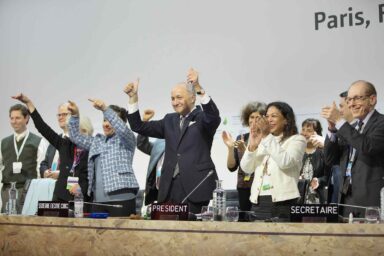Want to Protect Your Health? Start by Protecting Indigenous Land
Protecting Indigenous lands in the Brazilian Amazon could prevent millions of respiratory diseases and billions in healthcare costs.
|
Listen To This Story
|
To recognize Earth Week, WhoWhatWhy is running a new piece from our partners at Covering Climate Now each day until Earth Day on April 22. We are committed to covering the climate crisis and other environmental struggles humanity faces each and every week. Read more of our environmental coverage here.
By protecting Indigenous territories in the Amazon, more than 15 million respiratory and cardiovascular-related illnesses, like asthma and lung cancer, could be avoided each year and almost $2 billion dollars in health costs saved. That’s according to a new study in Nature.
The decade-long study looked at the health impacts of wildfires in the Amazon and the amount of dangerous particles absorbed by the rainforest. It found the Amazon can absorb nearly 26,000 metric tons of dangerous particles released each year — with Indigenous territories responsible for absorbing nearly 27 percent of that pollution.
Rainforest foliage acts as a biofilter for air pollution and improves air quality by reducing the concentration of pollutants produced by fires, like dust, soot, and smoke. According to researchers, ecosystems with less trees, greenspace, and organic protection from airborne pollutants, like cities, see higher rates of health disparities, including general respiratory irritation, bronchitis, and heart attacks.
In the Brazilian Amazon, wildfires are often set by cattle ranchers, illegal miners, and other land-grabbers working to expand their businesses, exacerbating deforestation and threatening Indigenous territories. In 2020, land conflicts in Brazil hit 1,576 cases — the highest number ever recorded by the Catholic Church-affiliated Pastoral Land Commission since it first began keeping records in 1985.
Researchers found that the particles released by those fires traveled hundreds of miles to distant cities, penetrating the tiny sacs in lungs and passing directly into residents’ bloodstreams.
The study concluded that protecting Indigenous territories from wildfires and land grabs could help prevent thousands of diseases. Research suggests that when Indigenous peoples are given financial and legal support for land management, as well as property rights, forests have better outcomes.
Under former president Jair Bolsonaro’s four-year administration, deforestation in the Amazon rose 56 percent, with about 13,000 square miles of the land destroyed. While Indigenous peoples have lost an estimated 965 square miles of their traditional territories due to Bolsonaro’s policies.
Indigenous leaders are urging current President Luiz Inacio Lula da Silva to follow through on promises he made during his campaigning to create new Indigenous reservations in the Amazon and continue reversing his predecessor’s policies.
“This study reinforces what Indigenous peoples have been saying for ages,” Dinamam Tuxa, executive coordinator of the Association of Brazil’s Indigenous Peoples, told the Agence France-Presse.
“It demonstrates the importance of our territories in fighting dangerous pollution … and climate change.”
This story by Lyric Aquino was originally published by Grist and is part of Covering Climate Now, a global journalism collaboration strengthening coverage of the climate story.





